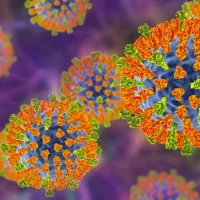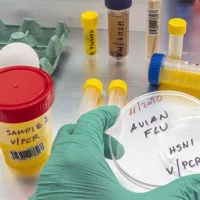
 Collin Spencer (EATON RAPIDS, Mich.) — Collin Spencer was just 17, in the summer before his senior year, when he said she started to have hallucinations that would pop out from the television or newspaper.
Collin Spencer (EATON RAPIDS, Mich.) — Collin Spencer was just 17, in the summer before his senior year, when he said she started to have hallucinations that would pop out from the television or newspaper.
“Everything seemed completely real. It was like being stuck in a bad trip,” Spencer, of Eaton Rapids, Michigan, told ABC News. “It took me months and months before I realized that it was just a mental illness.”
Spencer, now 23, was hospitalized three times after running away since he became so paranoid he was convinced that everyone was out to get him.
He said he took everything “in a malicious way that was directed toward me.”
After being put on medication, he was eventually taken to a new program in East Lansing that was part of a pilot program called NAVIGATE, aimed at helping patients in the throes of a psychotic episode. At that point, the delusions were still there and he remained tempted to run away, Spencer said.
“I didn’t trust it at all,” Spencer said of the program. “My mom told me that they would pay me — they would pay me to work with me. I wanted to save up money to run away again.”
At the program based at the Clinton-Eaton-Ingham Community Mental Health Authority in Lansing, Spencer was given a different kind of treatment than other centers as part of a study funded by the National Institute of Mental Health in which a team-based and comprehensive therapies were used to help patients in their first psychotic episode.
The results of that study were published on Tuesday in the American Journal of Psychiatry. To examine how additional therapies could help patients with psychosis, researchers investigated 400 patients between the ages of 15 and 40 during their first episode of psychosis. None of the patients had been on treatment for more than six months.
The patients were studied as they received either the standard care of medication and basic therapy or the NAVIGATE program with additional therapies, including personalized medication management, family psycho-education, individual therapy focused on resilience, and supported employment and education.
The study found that the 223 patients who took part in NAVIGATE were more likely to remain in treatment “longer, experienced greater improvement in quality of life and psychopathology, and experienced greater involvement in work and school.”
NAVIGATE patients remained in treatment for an average of 23 months — for six months longer than the other patients, according to study findings. Additionally, the rate of hospitalization was 3.2 percent for NAVIGATE participants and 3.7 percent for other participants, per month. Over the two years the patients were studied, 34 percent of NAVIGATE patients were hospitalized for psychiatric indications, compared to 37 percent for the other patients, the study found.
For Spencer, the outpatient treatment helped him not only get a handle on his delusions but to look toward his future.
“It took a little while but after a while I really began to trust them,” Spencer said. “They would talk to me and they’d make me feel comfortable about talking to them. … They helped me set goals for myself. [It was] the biggest part of my recovery.”
Dr. Catherine Adams, medical director of the original program Spencer was involved in and now medical director of the new form called ETCH (Early Treatment and Cognitive Health), said what was so exciting about the study is that patients with psychosis were getting their lives back in addition to just coping with symptoms.
“It took into account where people are in there lives and what’s important to them. … All of that stuff is detoured in a major way,” after a psychotic episode, Adams explained to ABC News. “What can we do to get you back on your path to get you back on chasing your hopes and dreams.”
Adams said it’s crucial that the patient and the doctor share decision making so that the patient feels like they are in control of their own life.
Nicholas Breitborde, associate professor in the Department of Psychiatry and Behavioral Health at Ohio State University, said the study could help address the issues of depression or anxiety that can affect formerly psychotic patients as they recover.
“They’re still struggling with anxiety and depression, trouble with cognitive function,” Breitborde described of patients after an episode. “It creates a huge barrier to getting back to meaningful lives.”
Under current systems, patients are often put on medication and further treatment revolves around being in compliance with their medication, Breitborde said.
“The meds are helpful. They’re an effective treatment. They’re a part of the puzzle,” Breitbrode acknowledged. “Meds are notoriously not helpful [in patients] getting back into work or school.”
Breitbrode said he was excited to see how this study could lead to new programs or more involved services for patients so that they not only stay on medication but so they have a path to get back to their lives before they had the psychotic episode.
The new treatment could be a “game changer to what we consider for the standard of care for young adults with recent onset of psychosis,” Breitborde said.
Spencer said having the support from staff at the NAVIGATE program helped him as he struggled to figure out what to do after having to leave high school. His first goal was to get his driver’s license and his second was to get his GED, he said.
“It was great and it kind of gave me a reason to move towards the next thing,” Spencer explained. “I would set short-term and long-term goals and then I would work on short-term goals, complete each little one, and then move onto long-term ones.”
Now at age 23, Spencer has joined the new version of the program ETCH as a peer-to-peer counselor and said he’s “extremely proud” of himself for how far he’s come since the early days of his psychosis.
Adams said she hopes Spencer’s story and the program will help teens and young adults seek help early before they develop full-blown psychotic episode. In the study published on Tuesday, researchers found the average time it took for a psychotic patient to get diagnosed was 72 weeks.
“People know what to look for,” Adams said of the local community after they reached out to different local organizations. “We have girlfriends call and parents call [if they’re worried]. We need to broaden our reach and get our centers up and running.”
Copyright © 2015, ABC Radio. All rights reserved.















